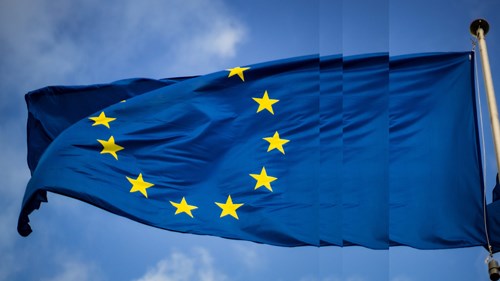Poland: Anti-crisis shield for Covid-19 epidemia
I. EMPLOYMENT MATTERS
1. REMUNERATION SUBSIDIES:
Entrepreneurs may apply for funding of the employees’ remunerations from the Guaranteed Employment Benefit Fund (for a total period of 3 months from the date of conclusion of the agreement on granting funds) with regard to employees affected by the economic standstill or short-time work as a result of the pandemic:
- an employee affected by the economic standstill shall receive a reduced remuneration (however, the employee’s remuneration may not be lower than the statutory minimum remuneration); this remuneration shall be funded from the Guaranteed Employment Benefit Fund up to the amount of 50% of the statutory minimum remuneration along with the social security contributions from the granted funds paid by the employer (i.e. PLN 1,533.09), taking into account the total working hours;
- in the event of a decreased turnover due to COVID-19 (by 15% or 25% towards applicable references periods), the employer may reduce working time by 20%, however no less than to 1/2 full-time working time (however, the employee’s remuneration may not be lower than the statutory minimum remuneration); the remuneration shall be funded from the Guaranteed Employment Benefit Fund up to 40% of the average monthly remuneration in Poland in the previous quarter (as published by the Polish Statistical Office – GUS) along with the social security contributions from the granted funds paid by the employer (i.e. PLN 2,452.27).
2. TERMS AND CONDITIONS OF WORK:
The conditions and mode of work during a period of economic standstill or reduced working hours shall be determined by the employer in consultation with the company's trade unions, representative trade unions or in consultation with the employees' representatives. The employer shall send a copy of the agreement to the competent district labour inspector within 5 working days of the agreement being concluded.
3. WORKING TIME:
It shall be possible to shorten daily uninterrupted employee’s rest from the current 11 hours to 8 hours, and weekly time of uninterrupted employee’s rest from 35 to 32 hours. It shall also be admissible to extend daily working time to 12 hours (equivalent working time) and to extend settlement period to 12 months.
4. PERIODIC MEDICAL CHECK-UP:
- The obligation to carry out periodic medical check-ups with regard to employees shall be suspended until the end of the epidemic state (the obligation will have to be fulfilled within 60 days following the end of the aforesaid state).
- The validity of medical certificates issued as part of periodic medical check-up which expired after 7 March 2020 shall be extended until 60 days from the date of the end of the epidemic state.
5. EMPLOYEES’ CAPITAL PLANS:
Implementation of the Employees’ Capital Plans in medium-sized enterprises is postponed until 1 October 2020.
II. CORPORATE MATTERS
- It shall be admissible to hold management boards’ and supervisory boards’ meetings with the use of means of distance communication. Adoption of resolutions by the aforesaid corporate authorities shall be possible in the same manner or in the written form. It shall also be possible to cast a vote in written form through another member of the company’s governing body. These means will be admissible unless the articles of association or statutes provide otherwise
- It shall be admissible to attend the Shareholders Meeting and the General Meeting of Shareholders with the use of electronic means of communication and exercise the voting right in the same manner.
- It shall be possible to postpone the deadline for approval of remuneration policy in listed companies for the members of the management board and the supervisory board until 30 August 2020 on the basis of the regulation.
III. REPORTING OBLIGATIONS
The deadline for disclosure of information in the Central Register of the Ultimate Beneficial Owners shall be postponed until 13 July 2020.
IV. PUBLIC PROCUREMENT
- Parties to public procurement agreement shall be obligated to inform each other about the impact of circumstances connected with COVID-19 on the proper performance of their contractual obligations.
- It shall be possible to modify a public procurement agreement in a situation where the circumstances related to the occurrence of COVID-19 may adversely affect the proper performance of the agreement (the price increase caused by this change may not exceed 50% of the agreement value).
- It shall be possible to release a party from the contractual penalties for delay in fulfilment of the public procurement in connection with the pandemic.
- Members of the companies’ governing bodies shall not be liable for damage suffered by the company as a result of refraining from pursuing claims arising out of: non-performance or improper performance of the public procurement agreement due to circumstances related to the occurrence of COVID-19; modification of the agreement due to COVID-19.
V. COMMERCIAL ACTIVITIES
During the period of the ban on operating in commercial facilities with a sales area exceeding 2000 m2, mutual rights and obligations of the parties to the lease, tenancy or other similar agreement shall expire.
VI. LEASE AGREEMENTS
- Lease agreements shall be extended until 30 June 2020 on the basis of the tenant’s declaration which should be submitted not later than on the original expiry date. This rule shall not apply if the tenant has breached the lease agreement.
- It shall not be allowed to terminate the lease agreement or change the amount of rent until 30 June 2020, except in the cases indicated in the regulations.









